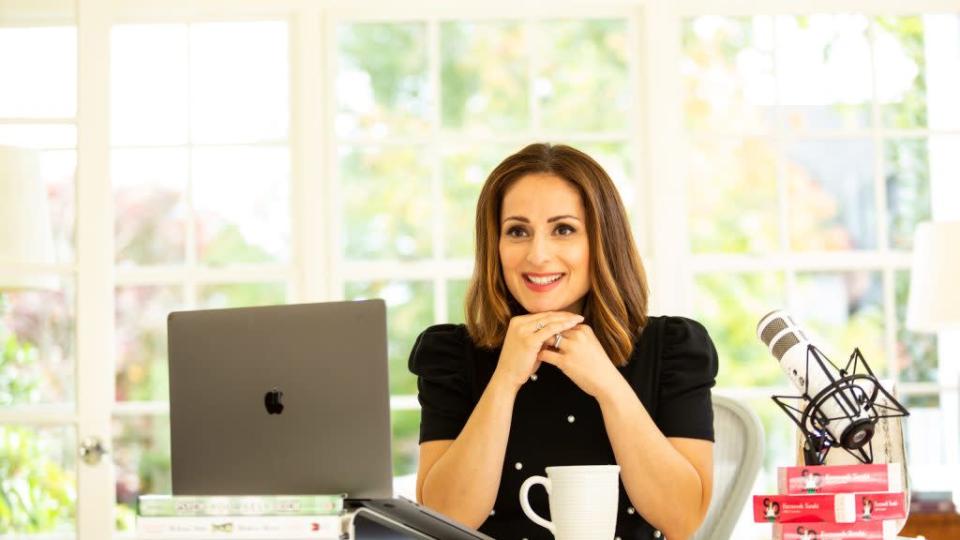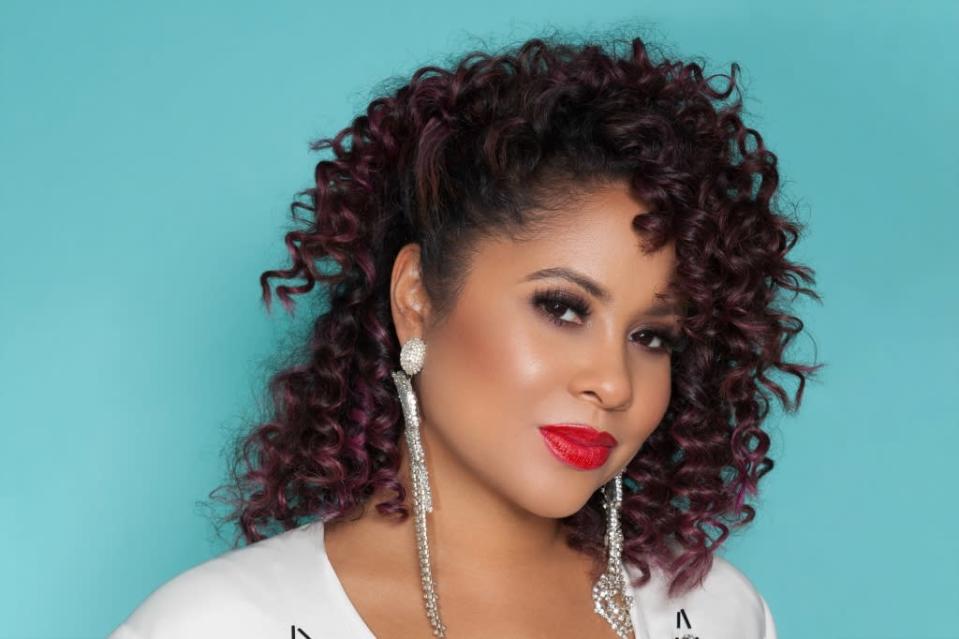[ad_1]
A 2010 Princeton University study argues that well-being stops improving as income increases beyond $75,000 a year. But more recent research says that well-being continues to increase even past the $75,000 mark. Turns out money can buy you some degree of happiness.
It can seem as though people are getting rich seemingly overnight, even as wealth inequality grows. The number of billionaires keeps rising—660 new billionaires were minted in 2021 alone. Fortune 500 CEOs can bring home pay packages worth hundreds of millions of dollars. And the Big Tech companies like Amazon are raising maximum base pay to $350,000 annually—and that’s before stock options are factored in.
Obviously, not everyone is going to enjoy such big paydays. But as you’re gunning for the next promotion, you might find yourself asking, how much money is enough? Is there a salary or investment account balance to aim for when you can feel like you’ve made it? And what do you have to sacrifice to get there?
There is no magic number
The concept of “enoughness” varies from one person to the next. We each have different goals and aspirations in life, and how you choose to define what enough means should reflect that. When you let society dictate your money goals, you run the risk of being unsatisfied and chasing the wrong thing.
“It’s easy to fall into feeling like your self-worth is tied to this number,” says Farnoosh Torabi, personal finance expert and editor at large of CNET Money. “Take a step back and ask yourself: What is the life that you want? Do you have unmet goals? The first step is to figure out what that ‘enoughness’ is for you.”

Do your research
While it might seem difficult to work out how much is enough, it’s never a bad idea to take the time to envision your ideal life, what matters to you, and then quantify how much money you’d need to achieve that. Torabi emphasizes the importance of figuring out your goals and the type of impact you want to have on the world when you’re trying to figure out what your enough is.
“Determining your own number is based on your lifestyle, how many people you’re caring for, and what their needs are,” says Samantha Ettus, a fintech entrepreneur and bestselling author. “It’s about deciding what is important to make your life fulfilling and then going for that.”

As you take the time to figure out what enough represents for you, you might have an income number in mind. If you’re not even sure where to begin, you might consider checking out the FIRE movement. FIRE stands for “financial independence, retire early.” Though the name emphasizes early retirement—a goal that isn’t for everyone—the movement’s framework can assist you in determining the number you need in order to reach financial independence.
To get to your number, you multiply your current (or ideal) annual expenses by 25. The “four percent rule” is the idea that you can withdraw 4% of your portfolio every year without risking running out of money or touching your investment principal.
This isn’t perfect math, of course. Critics of the FIRE movement often say that it encourages people to cut so many expenses that they don’t enjoy life. The 4% withdrawal rule might also be aggressive as people live longer, and they could potentially run out of money later in retirement.
But it can be helpful to know that there is some simple math you can do to understand just how much it costs to support your life. Having a vision for how you want to live and an income amount you want to reach are good starting points.
Understand that your number might evolve
Most of us start with one number in mind, but that number evolves as life changes.

“I used to be content making six figures, going on vacation, and owning a home,” says Angela Yee, Radio Hall of Fame inductee and serial entrepreneur. Then, one day, Yee earned $150,000 to broker a business deal between two people. “After that, I decided I wanted to make a million dollars and work smarter to earn more. I’m always thinking about how to invest. I need my money to make money.”
Atiya Avery, a researcher and assistant professor, was happy with her salary in her mid-twenties—and she was able to save close to 60% of her income. But after an audit at a previous job, she realized that she was earning 50% to 70% less than coworkers in similar roles, and it had a huge impact on her financial goals.

“That audit made me realize that I was undervaluing myself. I promised myself that I would never be in a situation again where I was not earning my worth. I make a good living, but I want to earn more because money is freedom,” Avery says.
“I’m always in a place where I am inviting money into my life,” says Torabi. “I had six side hustles at one point. But today, I’m fortunate that I don’t have to wake up every morning and think about how I will make more money. But I will always keep my eye out. And when I hear of a good opportunity, I’ll go for it.”
You should not feel guilty for wanting to earn more
While white male CEOs are frequently celebrated for their huge pay packages, women and people of color are often discouraged for wanting to earn more money, called out for being too ambitious. As a result, many of us are afraid of striving for more—and we’re probably selling ourselves short when making plans for how much we want to earn.
When she started her consulting business, Ellie Diop set a goal to earn $10,000 a month. She quickly surpassed that goal and built a multimillion-dollar company in one year. Diop wants to do more and make more money, but she sometimes struggles with guilt when she thinks about how far she has come.

“Three years ago, I lost my job and had to use EBT to help cover the cost of food for my kids,” she says. “I’m grateful for what I have, but I have bigger goals, and sometimes I feel guilty for wanting more.”
Among women, there’s often a fear of what you’ll have to sacrifice—time with family, for one—in order to achieve those big financial and career goals.
“I was worried that if I strived to make a million dollars, that would come at a high cost to my quality of life,” says Torabi. “I thought that the people who made millions of dollars did not spend time with their kids because they were busy trying to make millions of dollars. So I had to rethink this equation of making more and what that would require in my life. That was a game changer.”
And then there is the shame over having these big goals and the taboo over discussing them.
“I work with men, and they talk a lot about what they’re working on,” says Yee. “And I downplay what I have and don’t discuss it as much. It’s something that I’m not as comfortable discussing as they are.”
But Ettus argues it’s important for women to be more open about their financial goals. “One of my missions in life is to get women more comfortable talking about their financial goals. I think the more women talk about money and their ambitions with pride, the better off all women will be.”
Be clear on why you want to earn more
You shouldn’t have to explain to anyone else why you want to earn more money. But personally, you should be clear on why you do, or you might end up in an endless and unfulfilling chase for more. None of the women I spoke with think they’ll ever reach a point of feeling like they don’t need to earn anymore. But one of their big motivators is the desire to use some of the money they earn toward charitable goals—and higher paychecks allow them to do more good.
“I want to take care of people and create positive change in my community, which takes money,” says Yee. “But I think as a Black woman, it’s never just about you. And whether our families put that on us, or we put that on ourselves, we feel this obligation to help family members.”
The conversation on how much is enough shifts when it’s less about buying fancy clothes or expensive cars and more about investing in people and projects you really care about.

“My idea of wealth is being able to create sustainability, philanthropy, and opportunities for other people to create wealth,” says Jatali Bellanton, financial literacy advocate and 2019 New York State Mother of the Year. “It will never be enough money for me because, for every amount I spend helping someone, I find another person I would love to help by the next day. There are over 700 million poor people globally, and I want to help as many people as possible without becoming part of the statistics, so my wealth must continue to increase.”
April 18, 2022: The headline of this story has been updated to reflect how many people Fortune spoke with.
This story was originally featured on Fortune.com
[ad_2]
Source link
